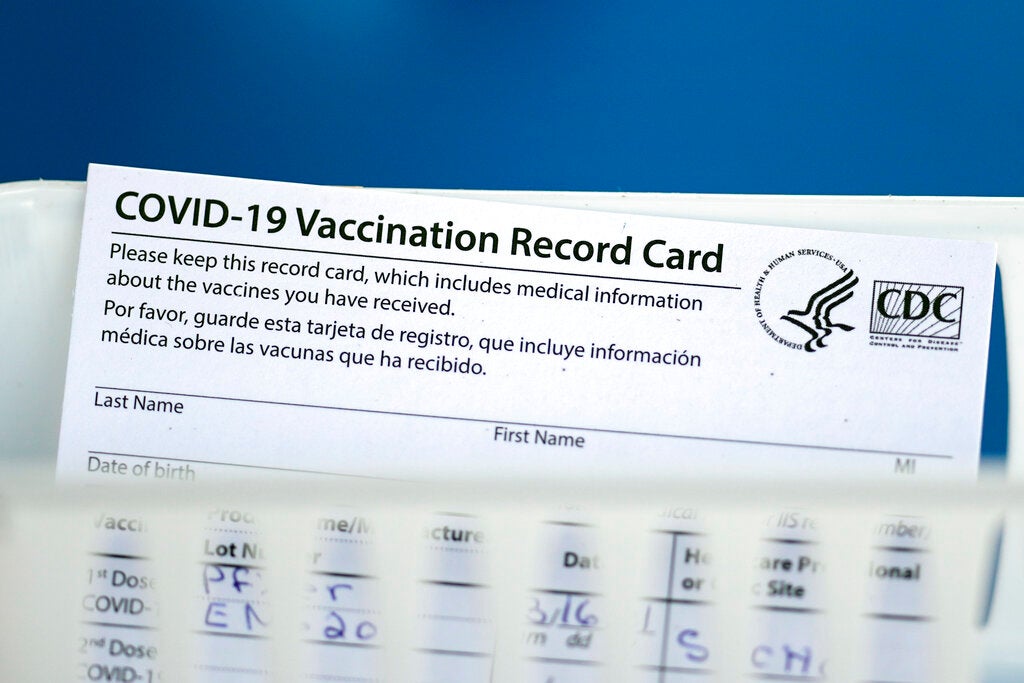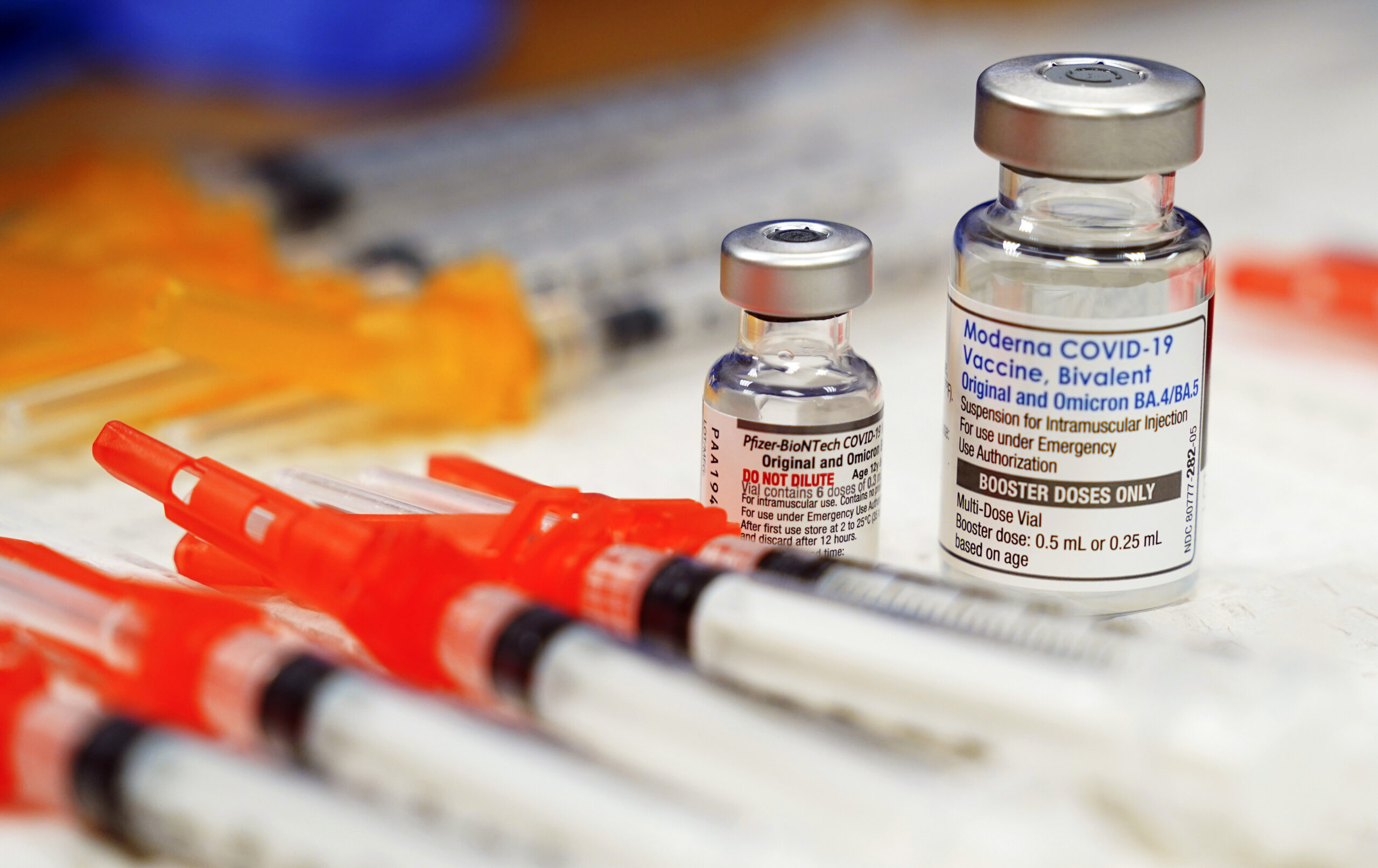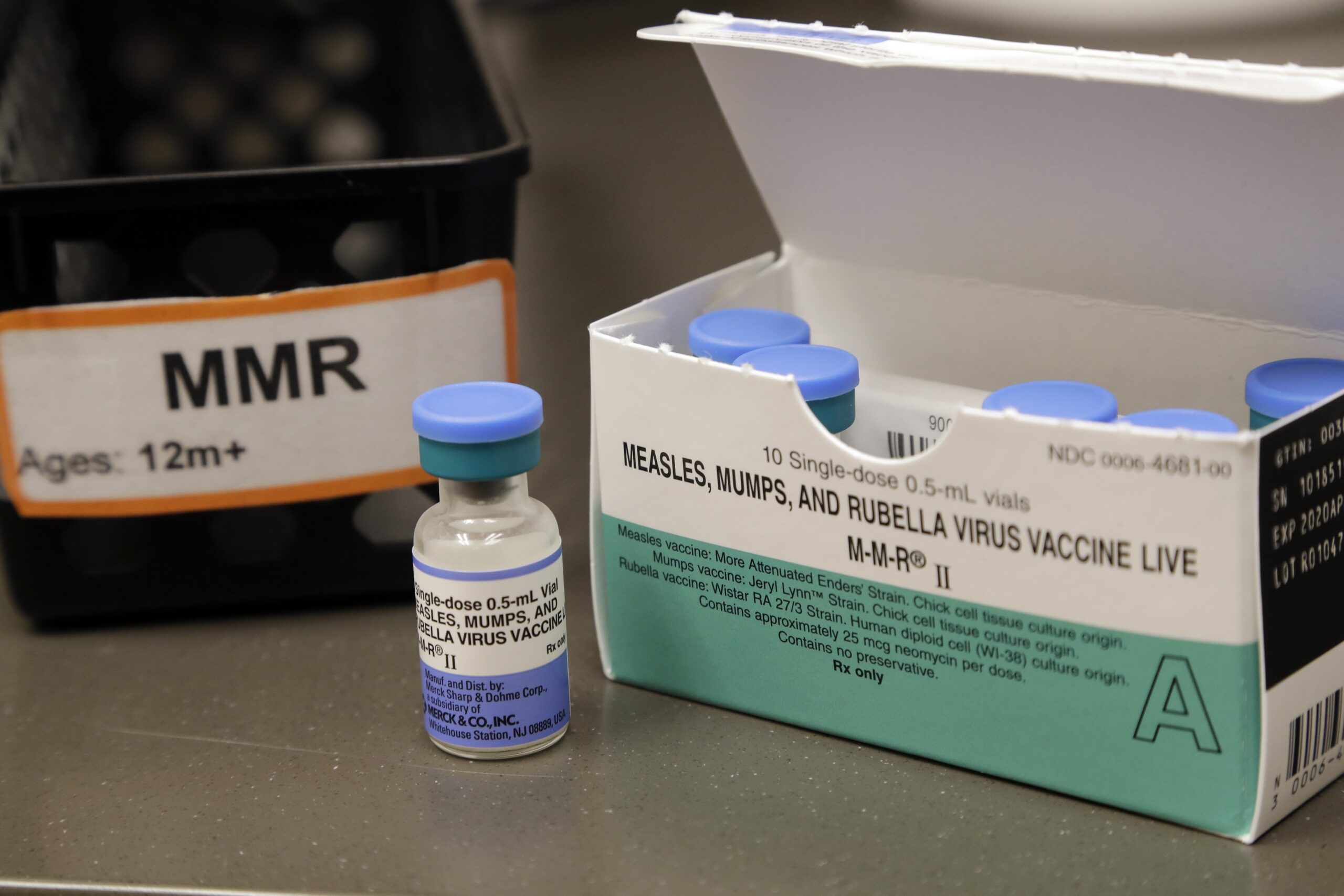More than 38 percent of Wisconsinites have received at least one dose of the COVID-19 vaccine as of Friday and have a physical or electronic vaccine card to prove it.
Vaccine cards aren’t anything new historically, but they may be unfamiliar to people who haven’t received them before.
Wisconsin Department of Health Services Deputy Secretary Julie Willems Van Dijk said in recent years, people don’t receive physical vaccination cards because the information is stored in centralized vaccine registries. It is for the COVID-19 vaccines, too, but there are other reasons why it’s important to hold onto this one.
News with a little more humanity
WPR’s “Wisconsin Today” newsletter keeps you connected to the state you love without feeling overwhelmed. No paywall. No agenda. No corporate filter.
“One of the reasons the card is very important right now is because we are in a national vaccine program, and we are all following the same standards that the Centers for Disease Control (and Prevention) has established in order to receive your vaccine,” she said in a coronavirus media briefing April 8.
In addition to receiving the vaccine card, people are given information about the vaccine they received, as well as information about how to enroll in vaccine safety and monitoring systems that track symptoms and adverse effects of the shot.
So, when do you need to show your card? What do you do if you lose it? Here are answers to some common questions related to the vaccine cards.
Why are we being issued these cards?
Peter Wilker, an associate professor of microbiology at the University of Wisconsin-La Crosse, said these cards are important reminders to vaccine recipients about the dates of their second shots, if they’re receiving the two-dose variety.
He said there may be situations where people are required to show proof of vaccination. That’s already the case for some countries, sports venues and cruise lines. Wilker said we could see those requirements being expanded in the future.
“The cards are a simple way to document your vaccination status,” he said.
What information is on this card?
Expect your card to have your name, date of birth and possibly a patient medical record number on it, Wilker said.
The type of vaccine you receive and the lot number the vaccine came from are listed, too, said Elizabeth Goodsitt, communications specialist for DHS. It’ll also have information about where and when you got the vaccine, and the date for your second appointment if you receive Moderna or Pfizer, the two-dose vaccines.
Do I need to bring it with me for my second vaccination if I get the Pfizer or Moderna vaccine?
Wilker said you should bring your card to your second vaccination appointment. The health care provider can update it with information from your second visit.
If you lost your card, the provider should be able to get you a new one at your second appointment.
What if I lose my card? Can I get a new one or copies of one?
Willems Van Dijk said by typing in your name and some identifying information, anyone can look up and print their own vaccination records from the Wisconsin Immunization Registry.
No matter where you were vaccinated, your information will be registered on this website, Goodsitt said.
Wilker added that there will be an electronic record of your vaccine at the pharmacy, clinic, health care organization or county health department where you received your vaccine. If you need a replacement card, you can try contacting the organization that last administered your vaccine.
Or, ask the vaccine provider for another one at your second appointment.
When should I have my card with me?
Goodsitt said apart from having your card with you at your second dose appointment, plan to store it in a safe place.
Wilker said although there’s no need to carry the card with you now (unless you’re traveling to certain countries or at an event where proof of vaccination is required), that could change.
“It is something to investigate before a planned trip or event,” he said.
Should I get my card laminated?
Goodsitt said that’s a personal decision and there’s no guidance on what people should do.
But Wilker advised against it. He said even if you’ve completed the scheduled vaccinations, you might need to get an additional booster vaccine in the future.
“A better option for now would be a protective case from which the card can be removed and updated,” he said. “If you’ve already laminated your card, your provider should be able to retrieve your vaccine history and fill in the information on a new card if needed.”
Where should I store the card?
Store it in a safe place like you would for other important documents, Wilker said. He also advised that you save a picture of your card in your phone so you have information at the ready if you need it unexpectedly or in case you lose your card.
Goodsitt said be sure not to post those photos or selfies of your vaccination cards because of the sensitive information it contains.






